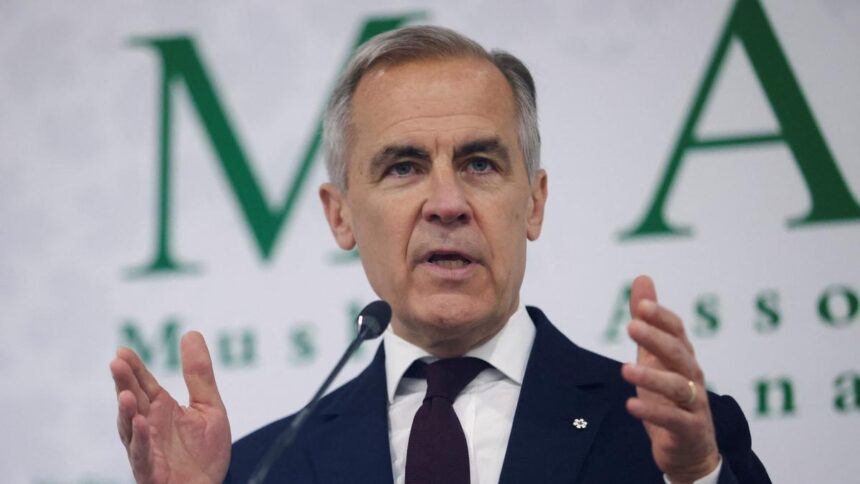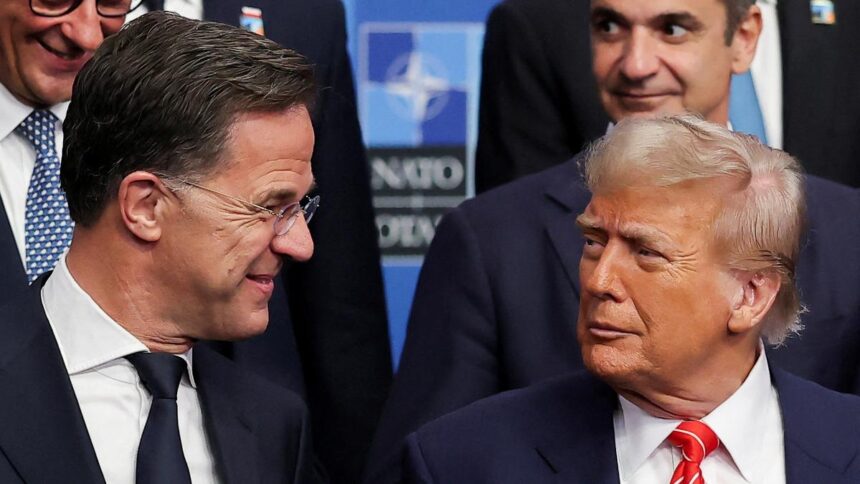The European Union said on Saturday (July 12, 2025) it was ready to retaliate to defend its interests if the United States pressed ahead with imposing a 30% tariff on European goods from August 1.
U.S. President Donald Trump latest salvo surprised the bloc, the United States’ largest trading partner, which had hoped to avoid an escalating trade war after intense negotiations and increasingly warm words from the White House.
Ursula von der Leyen, head of the EU executive which handles trade policy for the 27 member states, said the bloc was ready to keep working towards an agreement before August 1, but was willing to stand firm.
“We will take all necessary steps to safeguard EU interests, including the adoption of proportionate countermeasures if required,” she said of possible retaliatory tariffs on U.S. goods entering Europe.
EU ambassadors will discuss next steps on Sunday, before trade ministers meet in Brussels on Monday for an extraordinary meeting. They will need to decide whether to impose tariffs on 21 billion euros of U.S. imports in retaliation against separate U.S. tariffs against steel and aluminium, or extend a suspension which lasts until the end of Monday.
The EU has so far held back from retaliating against the U.S., although it has readied two packages that could hit a combined 93 billion euros of U.S. goods
European capitals swiftly backed von der Leyen’s position.
German Economy Minister Katherina Reiche called for a “pragmatic outcome to the negotiations”.
Trump’s proposed tariffs “would hit European exporting companies hard. At the same time, they would also have a strong impact on the economy and consumers on the other side of the Atlantic,” she said.
French President Emmanuel Macron said on X that the European Commission needed more than ever to “assert the Union’s determination to defend European interests resolutely”.
Retaliation might need to include so-called anti-coercion instruments if Trump did not back down, Macron said.
The tool, drawn up during Trump’s first term and used against China, allows the EU to go beyond traditional tariffs on goods and impose restrictions on trade in services, if it deems that a country is using tariffs to force a change in policy.
Spain’s Economy Ministry backed further negotiations but added that Spain and others in the EU were ready to take “proportionate countermeasures if necessary”.
Trump has periodically railed against the European Union, saying in February it was “formed to screw the United States”.
His biggest grievance is the U.S. merchandise trade deficit with the EU, which in 2024 amounted to $235 billion, according to U.S. Census Bureau data. The EU has repeatedly pointed to a U.S. surplus in services, arguing it in part redresses the balance.
Retaliation
Combining goods, services and investment, the EU and the United States are each other’s largest trading partners by far. The American Chamber of Commerce to the EU said in March the trade dispute could jeopardise $9.5 trillion of business in the world’s most important commercial relationship.
Bernd Lange, head of the European Parliament’s trade committee said he was now convinced the first stage of countermeasures should come into force on Monday, followed quickly by the second package.
Trump has said he would mirror any retaliatory moves.
Still, Trump has repeatedly announced sweeping tariffs in recent months, only to row back or suspend them before his own self-imposed deadlines. The expectation that he will again relent has led to increasingly muted responses on financial markets, which have recovered since plunging after his initial “Liberation Day” announcement of big global tariffs in April.
Three EU officials who spoke on condition on anonymity said they saw Trump’s latest threats as a negotiating ploy.
Carsten Brzeski, global head of macro at ING, said Trump’s move suggested that months of negotiations remained deadlocked and that the situation was inching towards a make-or-break moment for the transatlantic trade relationship.
“The EU will now have to decide whether to budge or to play hardball,” he said. “This will bring market volatility and even more uncertainty.”
Cyrus de la Rubia, chief economist at Hamburg Commercial Bank, noted that the brunt of the U.S. tariffs, if implemented, would be felt by U.S. consumers.
However, there would also be clear repercussions for the euro area economy, already struggling with weak growth.
The European Central Bank had used a 10% tariff on EU exports to the United States as the baseline in its latest economic projections, which put output growth in the euro area at 0.9% this year, 1.1% in 2026 and 1.3% in 2027.
It said a 20% U.S. tariff would curb growth by 1 percentage point over the same period and also pull down inflation to 1.8% in 2027, from 2.0% in the baseline scenario. It did not even offer an estimate for the possibility of a 30% tariff.
Published – July 13, 2025 04:08 am IST




















